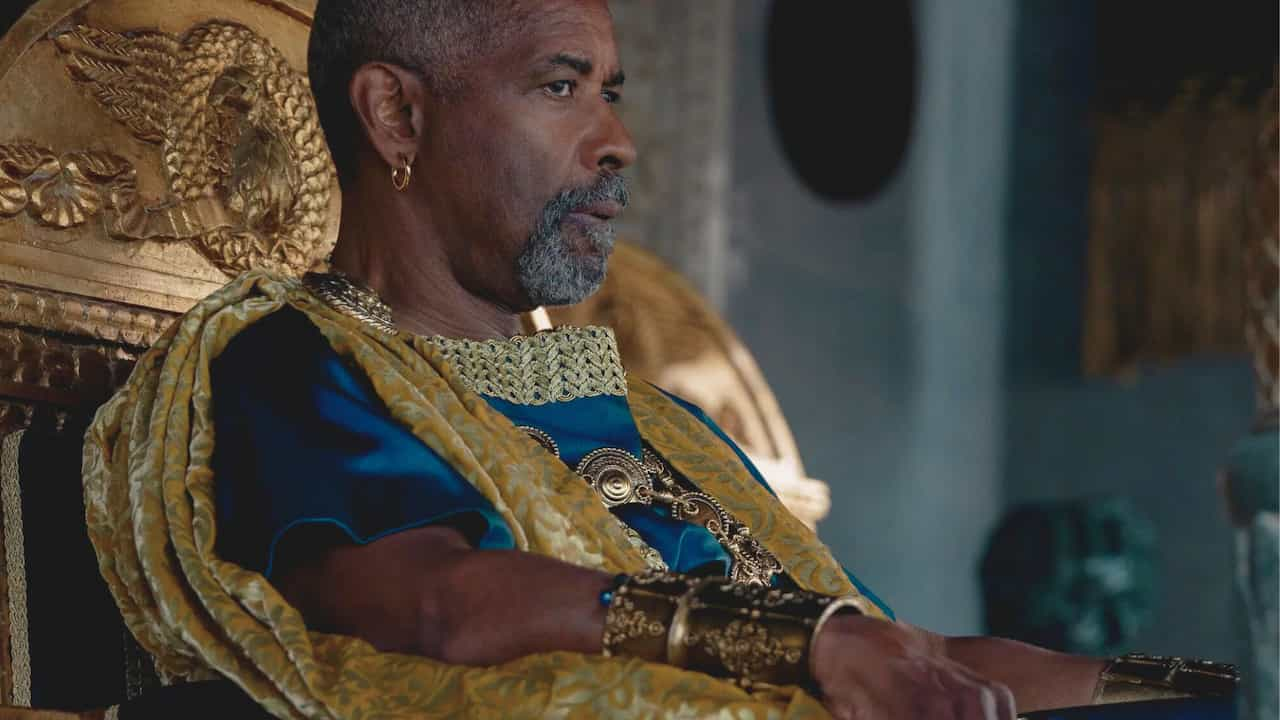‘Gladiator II’ Marks Ridley Scott’s Triumphant Return to Ancient Rome
In a striking revelation about one of Hollywood’s most anticipated sequels, Ridley Scott has opened up about the challenges and triumphs of bringing “Gladiator II” to life after 24 years. The 86-year-old director, known for his tireless work ethic, shared candid insights about the film’s journey from concept to screen.
A Legacy Continues
“The love for Gladiator kept growing,” Scott explains, crediting streaming platforms for keeping the original film’s popularity alive. This enduring enthusiasm drove him to revisit the world of Roman gladiators, this time focusing on Lucius, played by rising star Paul Mescal.
The new film follows Lucius, Maximus’s secret son, who has become a skilled fighter in North Africa. The story brings him back to Rome, where he faces Pedro Pascal’s character Marcus Acacius and deals with Denzel Washington’s cunning arms dealer Macrinus.
Behind-the-Scene Revelations
In a surprising disclosure, Scott revealed that Joaquin Phoenix nearly quit the original “Gladiator” during filming. “He was in his prince’s outfit, saying, ‘I can’t do it,'” Scott recalls. Russell Crowe reportedly called it “terribly unprofessional,” but Scott’s friendship with Phoenix helped keep him on board.
The director also shared intriguing casting choices:
- Paul Mescal caught Scott’s eye in “Normal People,” reminding him of Richard Harris.
- Barry Keoghan had to drop out due to “Saltburn” commitments.
- A painting by Jean-Léon Gérôme served as the inspiration for Denzel Washington’s character.
Production Challenges
Despite rumors of budget issues, Scott proudly notes that the film came in $10 million under budget, completing shooting in just 51 days. “I am a bit of a businessman,” he explains, showing his practical approach to filmmaking.
Historical Accuracy vs. Entertainment
When questioned about historical accuracy, Scott’s response was direct: “Get a life.” However, the film does maintain some authentic elements while taking creative liberties for storytelling purposes.
Looking Forward
Scott remains enthusiastic about the future of filmmaking, even embracing AI technology for animation projects. “I feel alive when I’m doing something at this level,” he says. “I don’t call it stress; I call it adrenaline.”
The film tackles themes that resonate with current events, drawing parallels between ancient Rome and modern political dynamics. Scott warns, “If we don’t watch it, we’re getting worse.”
The release of “Gladiator II” on November 22 promises to combine epic action with insightful commentary on power, class, and survival. For Scott, it’s not just a sequel but a chance to honor the beloved original while creating something new for today’s audience.
The film stands as a testament to Scott’s enduring vision and ability to adapt while maintaining the epic scale that made the original “Gladiator” a classic. With its mix of new talent and timeless themes, “Gladiator II” looks set to continue the legacy of its Oscar-winning predecessor.
